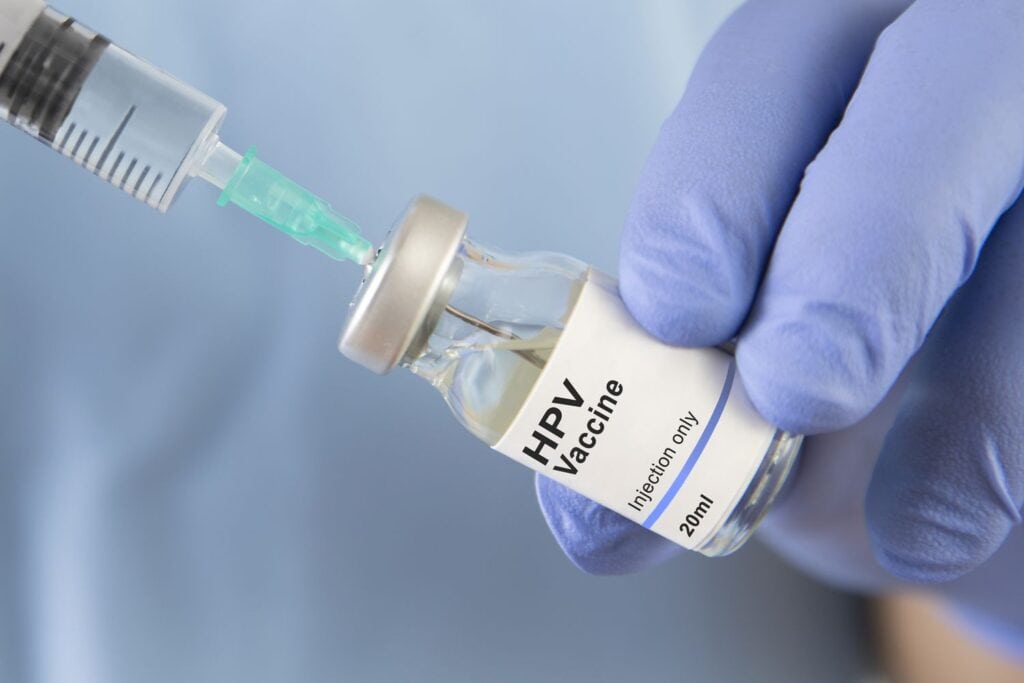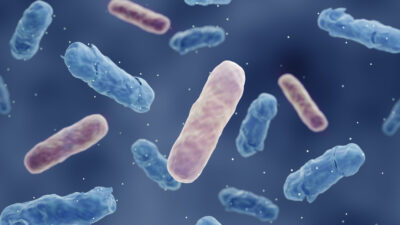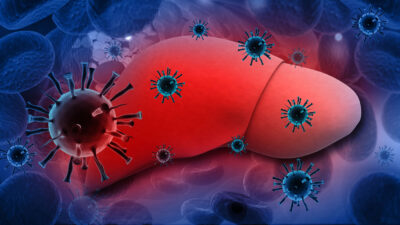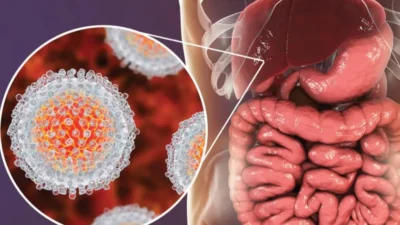Clear, evidence-based guidance for parents, schools, employers and anyone who wants to prevent HPV-related cancers.
Quick summary (if you’re short on time)
- The HPV vaccine prevents infections by the human papillomavirus (HPV), the main cause of cervical cancer and other cancers (anal, penile, throat). See more detail from World Health Organization
- Best protection comes when vaccination happens before exposure to the virus which is ideally in early adolescence (around 9 – 14 years) as confirmed by WHO
- WHO now supports an alternative single-dose schedule for many settings; several countries (including Nigeria) have adopted single-dose introduction strategies.
- HPV vaccines are safe; common side effects are mild (sore arm, low-grade fever); serious reactions are very rare. See more detail on WHO website.
1. What is HPV
Human papillomaviruses (HPVs) are a group of common viruses spread mostly through intimate skin-to-skin contact. Many HPV infections cause no symptoms and clear on their own, but some types (notably HPV 16 and 18) can persist and lead to cervical cancer, as well as cancers of the anus, penis and some head & neck cancers. Vaccination prevents the infections that most commonly lead to cancer. See details on the World Health Organization website.
2. What the HPV vaccine is (types and coverage)
There are several licensed HPV vaccines that protect against the high-risk HPV types that cause cancer:
- Bivalent (2-valent): protects against HPV 16 and 18 (main cancer types).
- Quadrivalent (4-valent): protects against HPV 6, 11 (cause genital warts) plus 16 and 18.
- Nine-valent (9-valent): covers 9 HPV types and provides broader protection against cervical and other HPV-related cancers.
WHO and global partners (Gavi) evaluate and prequalify vaccines for use in national immunization programs; vaccine choice sometimes depends on supply, cost and program strategy.
3. How the HPV vaccine works
HPV vaccines teach the immune system to recognise key harmless virus proteins (not live viruses). After vaccination, the body produces antibodies that quickly neutralise the actual virus if a vaccinated person is exposed later. Because the vaccine targets the virus types most commonly linked to cancer, preventing those infections greatly reduces future cancer risk. The immune response is strongest when the vaccine is given at younger ages, hence the emphasis on pre-adolescent dosing as explained by WHO.
4. Who should get the HPV vaccine
Ideal target (routine):
- Girls aged 9 – 14 years: priority for school- or community-based programmes; vaccination before sexual debut gives maximum protection. WHO and global strategies emphasise vaccinating girls in this age group to prevent cervical cancer.
Boys and other groups:
- Many countries also vaccinate boys, because HPV causes cancers in males (anal, penile, head & neck) and vaccinating boys increases herd protection. CDC recommends routine vaccination for boys as well as girls.
Older adolescents & adults (catch-up):
- Historically, 2- or 3-dose schedules were recommended for older ages. Current WHO guidance allows single-dose schedules for many target groups, and national programs have adapted accordingly; where single-dose is used, countries often conduct catch-up campaigns for multi-age cohorts. For older adolescents and adults who were not vaccinated earlier, clinicians may recommend 2 or 3 doses depending on age, immune status and national guidance.
People who are immunocompromised:
- People with compromised immune systems (e.g., HIV) often need at least 2 doses, sometimes 3, national guidance should be followed. See more detail.
Nigeria’s program (important):
- Nigeria launched a phased introduction of HPV vaccination in October 2023 aiming to reach millions of girls as part of routine immunisation and catch-up campaigns. The country has widely used the single-dose approach for the initial roll-out. National and WHO partners (Gavi, NPHCDA) are supporting school, facility and community delivery.
5. Recommended schedules – what to expect
- WHO (permissive single-dose position): WHO’s SAGE issued a permissive recommendation that a single dose of certain WHO-prequalified HPV vaccines can provide comparable protection to multi-dose schedules for girls aged 9 – 14, which helps simplify delivery and expand coverage. Countries are adopting single-dose strategies where appropriate.
- CDC (U.S.) guidance (for comparison): Routine vaccination at age 11 – 12 years, although it can start at age 9. For those who start before age 15, 2 doses are recommended (0 and 6 – 12 months). For those who start at age 15 or later, 3 doses are recommended (0, 1 – 2, and 6 months). Adults 27 – 45 may be vaccinated after shared clinical decision-making. (National programs vary, follow local health authority guidance.)
Practical note for Nigeria: Because Nigeria has introduced single-dose delivery for the initial nationwide roll-out, school-based campaigns and routine facility doses are being coordinated through NPHCDA and partners, check with your local clinic or school health coordinator for the exact schedule and any catch-up opportunities.
6. How effective is the vaccine?
Large studies and national rollouts show dramatic declines in the HPV types targeted by vaccines and reductions in precancerous cervical lesions; early signs that cancers will fall in the coming decades. Herd effects have been observed: vaccination programmes reduce infection rates even among the unvaccinated. Widely used HPV vaccines are estimated to prevent most cases of cervical cancer when coverage is high. See details on the Live Science website.
7. Safety – common side effects and rare risks
HPV vaccines have been given to hundreds of millions of people worldwide and have a strong safety record. Typical side effects are mild and short-lived:
- Pain, redness or swelling at the injection site
- Headache, fatigue, low-grade fever, nausea
- Fainting (syncope) can occur in adolescents after any injection, observation for 15 minutes is standard.
Serious allergic reactions (anaphylaxis) are rare (approximately 1–2 cases per million doses). WHO and CDC continue to monitor safety and report no evidence of increased risk of autoimmune diseases or infertility attributable to HPV vaccines.
Contraindications:
- Severe allergic reaction to a previous HPV dose or a vaccine component is a contraindication. Discuss pregnancy: HPV vaccine is not typically recommended during pregnancy; if a girl is found to be pregnant at time of campaign, vaccination is deferred and completed later per national guidelines. CDC.
8. Common myths (and the facts)
- Myth: HPV vaccine causes infertility.
- Fact: No credible evidence supports this, multiple safety reviews have found no link between HPV vaccination and infertility. As confirmed by CDC.
- Myth: If my child is not sexually active, they don’t need it.
- Fact: That’s precisely why it’s recommended before exposure, vaccinating early gives the strongest protection. As confirmed by WHO.
- Myth: It’s only for girls.
- Fact: HPV causes cancers in both sexes; vaccinating boys adds direct protection and strengthens herd immunity, many national programs include boys. As mentioned by AP News.
9. How to access HPV vaccine in Nigeria (practical steps)
- School programs: Many states deliver HPV vaccination through school-based campaigns; check notices from your child’s school or PTA.
- Public health clinics: The NPHCDA coordinates routine immunization, visit your local primary health care facility for schedules and catch-up options.
- Private providers & Pretty Health Care: Private clinics and preventive health providers (like Pretty Health Care) offer HPV vaccination for individuals, travel-clinic clients, or corporate/school partners. Ask about vaccine type, dose schedule being used, consent, and record-keeping.
10. School- & workplace practicalities (for administrators & HR)
- Consent & communication: Provide parents with clear information (what the vaccine prevents, schedule, side effects, where to go for care).
- Observation & aftercare: Set up a 15-minute observation area post-vaccination to watch for fainting or immediate reactions.
- Record-keeping: Keep vaccination cards and integrate records with the student/employee health file.
- Address misinformation early: Use trusted sources (WHO, NPHCDA, Pretty Health Care) and community leaders to counter myths.
11. Final takeaway
HPV vaccination is a safe, powerful, and cost-effective tool to prevent cervical and other HPV-related cancers. When delivered before exposure (ideally in early adolescence) and at high coverage, it can dramatically reduce future cancer burden. Nigeria’s nationwide introduction is a major public-health milestone, parents, schools and employers all play a role in turning vaccine availability into real protection.




